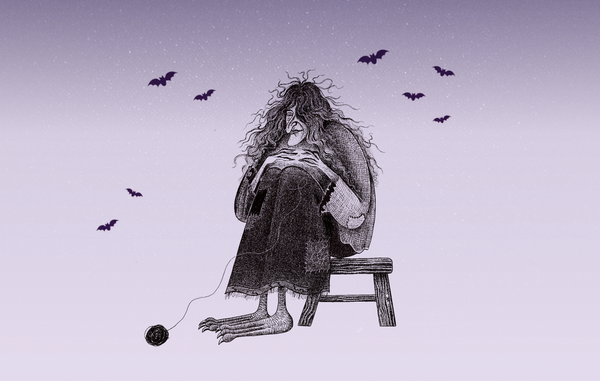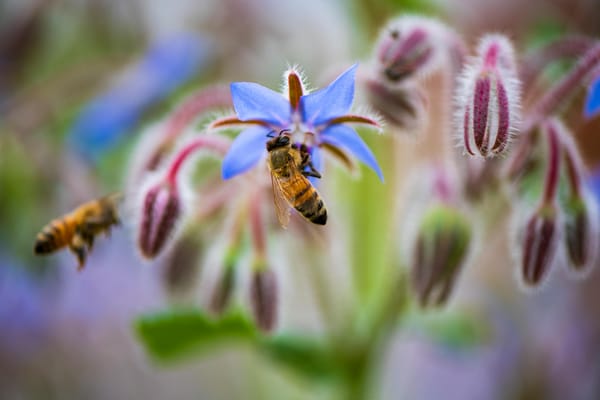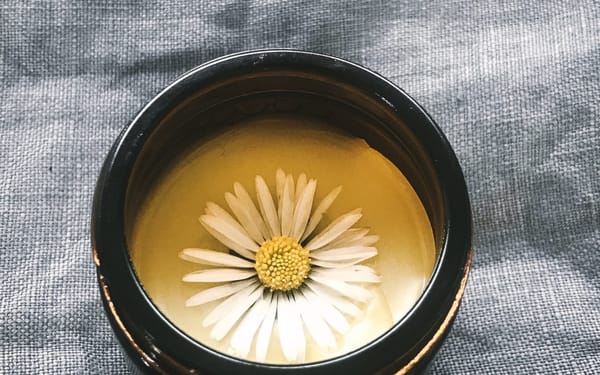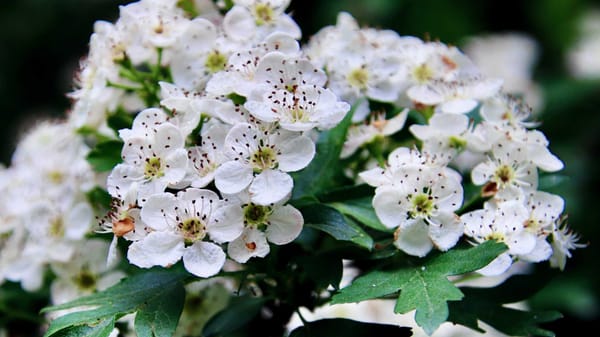Hayfever can be an itchy, irritating thing to suffer with in the springtime. We look at what causes it, and try out a range of natural remedies to help soothe the discomfort. So if your child suffers from this seasonal problem read on to find out why garlic and dark green foods are beneficial.
What is Hayfever?
Hayfever is a seasonal form of allergic rhinitis. Symptoms include itchy, red sore eyes, frequent sneezing, sinusitis and excess catarrh. It can also cause tiredness and irritability.
If your child is a sufferer, firstly try to avoid pollen; the worst times are in the morning and evening. Try not to go into high pollen areas at these times. Splashing the face with cold water and bathing the eyes will help to wash away the irritants. It is also possible to apply a barrier ointment such as un-petroleum jelly into the base of the nostrils, which helps to trap the pollen and prevents it from irritating the lining of the nose.
Home treatments for hayfever
Aloe vera gel or cooled eyebright tea bags can be placed over the eyes to ease discomfort. One approach that can be effective for some people is to take 1 tsp of local honey dissolved in warm water daily for a month before hay fever season starts to desensitise your child against local pollen.
Aromatherapy can be beneficial in treating hayfever. Try traditionally soothing essential oils such as Lavender and Chamomile Roman or German. Let your child’s nose be the guide as to which one would be most effective. The oils may be used in massage (just a few drops in a carrier oil) or a few drops may be inhaled from a tissue.
Dietary changes that can be helpful in treating hayfever
Many hayfever symptoms may be brought under control through dietary change. It is always best to get nutrients from food as they are more easily assimilated by the body. Try to include more of the following foods:
• Garlic helps to reduce excess catarrh, if possible eat a raw clove a day (stir into food after cooking).
• Beta carotene rich foods, such as red and orange veg.
• Dark green foods are also helpful as they help to eliminate excess toxins in the body. Seaweeds are particularly beneficial due to their high mineral content. Try the wild arctic seaweeds at oceansofgoodness.co.uk.
Ayurveda to treat hayfever
As the oldest healing science known to man, Ayurvedic texts say that to achieve true health we must be in physical, emotional and spiritual balance. Here we look at ways in which this ancient medical system can be applied to those suffering from hayfever.
Allergies can show up just about anywhere in your body and create an incredible variety of symptoms, affecting your nose, eyes, throat, lungs, stomach, skin and nervous system. Standard treatment for allergies involves taking antihistamines, decongestants, steroids and allergy shots.
While these drugs can be effective, they all have side effects such as weakening of the immune system, drowsiness and nausea as well as becoming less effective over time. Ayurveda can offer a natural way of beating allergies without harming your body.
Dr Prasanna, Ayurvedic Physician at Ayush Wellness Spa, Jersey says “Ayurveda is an ancient science of life originated in India which focuses on the importance of living in tune with nature. At its simplest, ‘dosha’ is your individual bio-energy which needs to be maintained in balance for health”.
Ayurveda recommends natural measures in preventing and treating hay fever. Dr Prasanna gives his top tips on how to survive the allergy season the natural way:
• Eat light, freshly cooked and easily digestible food, avoiding excess dairy and wheat.
• Eat organic fruit and vegetables like oranges, radish, peppers and garlic.
• Make your own herbal teas containing ginger, turmeric, cumin seeds and cinnamon and sip 5-6 cups throughout the day.
• A glass of warm water with a piece of lemon and teaspoonful of honey is a useful drink.
• Apply a thin barrier of almond oil, coconut oil or sesame oil around the nasal area.
• Ayurvedic treatments like Nasya (nasal & sinus treatment), Shiroabhyanga (head massage) and Hot stone therapy can be beneficial during hay fever.
• Ease your symptoms by taking quarter teaspoonfuls of turmeric powder mixed with honey twice a day, along with plenty of warm water or herbal teas.
• Breathe easy by practicing Pranayama (breathing techniques) that enhances flow of prana/life force which will help to bring balance back.
• Avoid frozen, cold, processed food and ice cold beverages including alcohol.
Hayfever: Advice from a Nutritionist
What can I do to reduce hayfever symptoms naturally? Erin McCann explains that hayfever is the result of the immune cells responding to harmless allergens and stimuli, and therefore it's important to boost the immune system.
The best way to avoid this hyper-histamine reaction is to balance and modulate the immune system through healthy eating & nutritional supplementation and to try to minimise the pollen that enters the system.
Reducing exposure:
· Change clothing and shower when returning from being outdoors
· Change pillow cases often as pollen clings to the hair and face
· Wear a mask or wrap around sunglasses
· Close windows and use air filters & dust your home often with a damp cloth
· Use a lint roller on furniture or hoover it.
· If you have a dog, bathe them regularly
· Use natural barrier balms such as HAYMAX to stop pollens from entering the nose
Foods to eat & avoid:
1) Increase natural antihistamine and anti-inflammatory foods and herbs:
· Vitamin C helps reduce symptoms of allergic rhinitis. Increase intake of citrus fruit, berries, broccoli, Brussels sprouts, cherries and kale.
· Quercetin is a flavonoid which balances immune function and can stabilise immune cells that produce histamine. It can be found in elderberries, blackberries, red grapes, red apples, and onion.
· Stinging Nettle extract or tea may be helpful in reducing allergic rhinitis symptoms.
2) Eat local honey and bee pollen.
· A teaspoon or so of local raw honey each day may aid in gradual pollen desensitization as will taking bee pollen (start off taking small amounts & build up)
3) Reduce histamine containing foods which may exacerbate symptoms:
Processed meats
Alcohol
Fermented foods
Foods containing preservatives and additives
Cheese and other cow’s milk products
Supplements:
The therapeutic aim of taking supplements for hay fever should be to modulate immune function and to reduce histamine response and inflammation. Bee Prepared immune formulas are my supplements of choice as they contain ingredients which effectively support immune function and have natural antihistamine properties.
Bee Prepared Daily immune formula, combines propolis, elderberry, olive leaf, acerola cherry & beta glucans & Bee Prepared Max is a more concentrated version and also includes astaxanthin and reishi mushroom. I recommended the Daily for everyday use & the MAX for when pollen count is high or suffering increases. For maximum benefit it’s helpful to take an immune supplement such as Bee prepared immune formula a few weeks or so before hay fever season begins & daily, until allergy season is over. These supplements are ideal as they don’t stimulate the immune system like some ingredients can, but rather, modulate it, which means they are suitable to take regularly unlike some immune supplements which should only be taken for short periods of time like echinacea.
The gut also plays an important role and balancing the gut flora also aids in supporting long term immune health and reduction of allergies so adding a good quality probiotic such as Optibac can also help.
Recipe: Hay fever support smoothie
Makes 2-3 smoothies. Combine everything in a blender or Nutribullet & blitz.
· 1 cup fresh or frozen pineapple (it is rich in bromelain which has anti inflammatory properties & a study showed it can improve in nasal drainage, swelling and help restore free breathing.
· 1 Apple (the vitamins A & C are important for immunity and healthy mucous membranes throughout the respiratory tract).
· Handful red grapes (their skins contain resveratrol, which protects us from both nasal allergy symptoms and wheezing).
· ½ cup coconut or almond yogurt
· 1 banana (rich in iron, zinc and potassium
· 1 cup nut or coconut milk (dairy causes mucus to build)
· 1 tsp fresh ginger or ½ tsp powdered- an anti inflammatory that helps reduce nasal swelling and other symptoms
· Capsule contents of 2 Bee prepared immune formula (daily or max strength) it contains ingredients which are rich in quercetin which has natural antihistamine properties, plus a healthy immune system has been shown to help with allergy symptoms (available in health stores and on Ocado).
· ½ teaspoon cinnamon (it has anti-inflammatory properties).
Erin Cann is an NT mBANT Dip ION Nutrition Therapist
Image: with thanks to Juan Encalada







